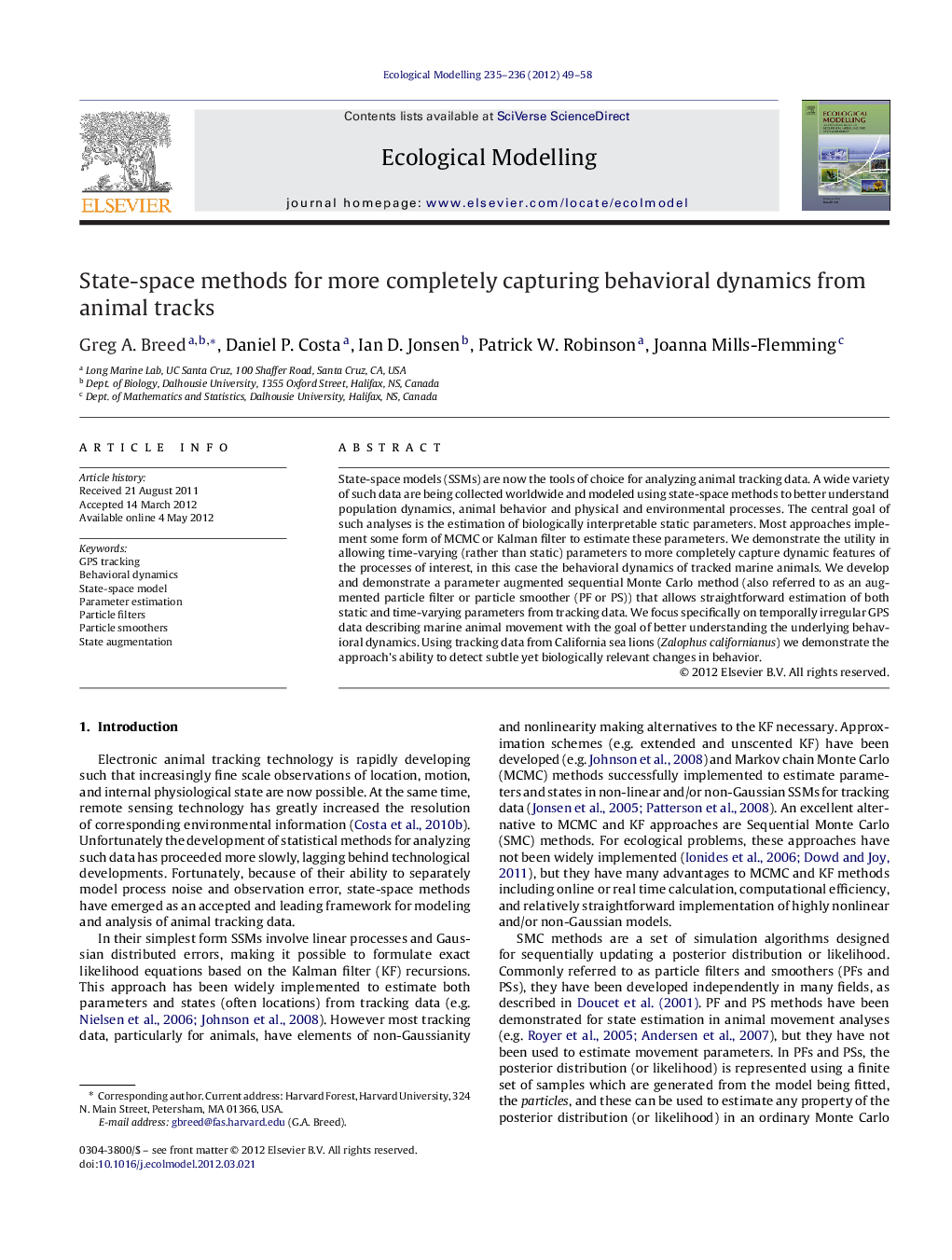| Article ID | Journal | Published Year | Pages | File Type |
|---|---|---|---|---|
| 4376448 | Ecological Modelling | 2012 | 10 Pages |
State-space models (SSMs) are now the tools of choice for analyzing animal tracking data. A wide variety of such data are being collected worldwide and modeled using state-space methods to better understand population dynamics, animal behavior and physical and environmental processes. The central goal of such analyses is the estimation of biologically interpretable static parameters. Most approaches implement some form of MCMC or Kalman filter to estimate these parameters. We demonstrate the utility in allowing time-varying (rather than static) parameters to more completely capture dynamic features of the processes of interest, in this case the behavioral dynamics of tracked marine animals. We develop and demonstrate a parameter augmented sequential Monte Carlo method (also referred to as an augmented particle filter or particle smoother (PF or PS)) that allows straightforward estimation of both static and time-varying parameters from tracking data. We focus specifically on temporally irregular GPS data describing marine animal movement with the goal of better understanding the underlying behavioral dynamics. Using tracking data from California sea lions (Zalophus californianus) we demonstrate the approach's ability to detect subtle yet biologically relevant changes in behavior.
► We develop particle filter and smoother methods for fitting mechanisitic state-space models to animal tracking data. ► This method employs a state augmented SIR particle smoother that estimates time-varying movement parameters. ► The particle smoother tracks both discretely switching and slowly varying parameters well in simulations. ► When fitting real GPS data from sea lions, subtle changes in behavior were easily detected.
